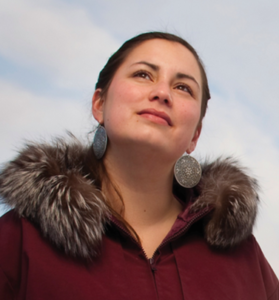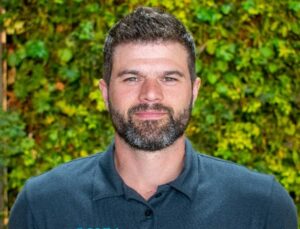Date: Tuesday, March 30, 2021
Time: 11:00 a.m. to 4:30 p.m. EST (Ontario/Quebec)
Location: Virtually via Zoom. The Zoom link will be provided via email to registered participants a few days before the forum date.
Theme: Robust Doctoral Education: Planning for the Future
A day of expert presentations, collaborative dialogue and sharing of ideas about current and future innovations in Doctoral Nursing Education in Canada amongst cross-country faculty colleagues.
Topic #1: Preparing graduate students to develop a robust program of research while balancing leadership, service, and teaching
Dr. Alex Clark, University of Alberta

Dr. Alex Clark is Associate Vice President (Research) and Professor at the University of Alberta, and a World Economic Forum Young Global Leader / Young Scientist. Alex fulfills leadership roles with a number of national research funding bodies across Canada for CIHR and Heart & Stroke Foundation Canada. A complexity theorist by background, Alex’s research on heart disease has been published in some of the world’s most influential journals, including The Lancet, British Medical Journal, Journal of American College of Cardiology and Social Science & Medicine. Alex regularly writes and teaches nationally and internationally on research, mentorship, and leadership skills.
Topic #2: Applying Principles of Trauma-and-Violence Informed Care into Graduate Supervision
Susan Jack, RN PhD, McMaster University
 Susan Jack, RN PhD, Professor, School of Nursing and Associate Member, Department of Health Research Methods, Evidence and Impact, McMaster University. Since 2003, Dr. Jack has supervised or mentored 65 graduate students through their Masters or Doctoral studies and thesis projects. In the Faculty of Health Sciences, she teaches and coordinates graduate level courses in Qualitative Health Research Methods and Mixed Methods. She has been honoured twice with the McMaster Faculty of Health Sciences Award for Excellence in Graduate Supervision, and in 2018, she was one of 12 finalists from across Canada selected for the Outstanding Graduate Mentorship award from the Canadian Association for Graduate Studies. Her program of research focuses on community-based approaches to the prevention of family violence and the use of trauma-and-violence informed care principles in public health practice.
Susan Jack, RN PhD, Professor, School of Nursing and Associate Member, Department of Health Research Methods, Evidence and Impact, McMaster University. Since 2003, Dr. Jack has supervised or mentored 65 graduate students through their Masters or Doctoral studies and thesis projects. In the Faculty of Health Sciences, she teaches and coordinates graduate level courses in Qualitative Health Research Methods and Mixed Methods. She has been honoured twice with the McMaster Faculty of Health Sciences Award for Excellence in Graduate Supervision, and in 2018, she was one of 12 finalists from across Canada selected for the Outstanding Graduate Mentorship award from the Canadian Association for Graduate Studies. Her program of research focuses on community-based approaches to the prevention of family violence and the use of trauma-and-violence informed care principles in public health practice.
Topic #3: Nimble and flexible online teaching
Tracie Risling, RN PhD, University of Saskatchewan
 Tracie Risling, RN PhD is the Interim Associate Dean Research and Graduate Studies for the College of Nursing at the University of Saskatchewan. Dr. Risling has spent more than 15 years in nursing education, beginning with teaching and curriculum development at Saskatchewan Polytechnic before a move to the University of Saskatchewan in 2010. Dr. Risling has continued her engagement in curriculum design and evaluation for both undergraduate and graduate programs. She also facilitates workshops on the advancement of nursing scholarship, including study on teaching and learning. Dr. Risling has an established program of health informatics research that includes work on social media, co-design of patient-centered technologies, and patient access and use of electronic health records. This expertise has informed her ongoing exploration of technological innovation in the nursing classroom.
Tracie Risling, RN PhD is the Interim Associate Dean Research and Graduate Studies for the College of Nursing at the University of Saskatchewan. Dr. Risling has spent more than 15 years in nursing education, beginning with teaching and curriculum development at Saskatchewan Polytechnic before a move to the University of Saskatchewan in 2010. Dr. Risling has continued her engagement in curriculum design and evaluation for both undergraduate and graduate programs. She also facilitates workshops on the advancement of nursing scholarship, including study on teaching and learning. Dr. Risling has an established program of health informatics research that includes work on social media, co-design of patient-centered technologies, and patient access and use of electronic health records. This expertise has informed her ongoing exploration of technological innovation in the nursing classroom.
Topic #4: Equity, diversity, and inclusion in doctoral education
Dionne Sinclair, Southlake Regional Health Centre

Dionne Sinclair – Being a Culturally Competent Leader in Healthcare Dionne Sinclair is currently the Multi-Site Director of Diversity and Cultural Advancement with Southlake Regional Health Centre and Orillia Soldiers’ Memorial Hospital. In this new role, Dionne focuses on identifying gaps and developing strategies to create more just and equitable workplaces. She has a passion for change in the areas of culturally competent leadership and focused on diversity in health care leadership during d her PHD studies. Dionne is a member of the Registered Nurses’ Association of Ontario (RNAO) Black Nurses task force and is a founding member of the Canadian Black Nurses Network. Reporting directly to the CEOs of both hospitals, Dionne is working with all levels of leadership to develop an enterprise-wide framework, with recommendations tailored to each organization. As a Certified Healthcare Executive, Dionne’s previous leadership roles include; Clinical Director of the Medicine Program at Southlake Regional Hospital, Director of Home and Community Care Planning and Strategy for the North West Local Health Integration Network (LHIN), and the Manager of Mental Health and Addictions at Humber River Hospital. Dionne is also a mother of 3 beautiful girls and an entrepreneur, motivational speaker, and an award-winning fitness professional.
Christina Chakanyuka, University of Victoria
 Christina Chakanyuka is a Métis nurse, educator, and (re)searcher, who is committed to using her “energy, power, and abilities in ways which will benefit family and community” (Hart, 2002, p.32). Born and raised on Dene/Cree (Treaty 8) Territory in Fort Smith, NT, Christina has strong ties to community and is committed to honoring Indigenous strength, resilience, resurgence, and rights to self-determination in nursing practice, education, and research. She is currently teaching and completing her PhD in nursing at the University of Victoria on the beautiful, unceaded Coast Salish Peoples homelands where she co-stewards the Indigenous Initiatives Committee. Working closely with BC CIHR Indigenous Health Research in Nursing Chair, Dr. Lisa Bourque Bearskin, she is advancing Indigenist nursing research and mentorship guided by the core tenants of anti-racism and love.
Christina Chakanyuka is a Métis nurse, educator, and (re)searcher, who is committed to using her “energy, power, and abilities in ways which will benefit family and community” (Hart, 2002, p.32). Born and raised on Dene/Cree (Treaty 8) Territory in Fort Smith, NT, Christina has strong ties to community and is committed to honoring Indigenous strength, resilience, resurgence, and rights to self-determination in nursing practice, education, and research. She is currently teaching and completing her PhD in nursing at the University of Victoria on the beautiful, unceaded Coast Salish Peoples homelands where she co-stewards the Indigenous Initiatives Committee. Working closely with BC CIHR Indigenous Health Research in Nursing Chair, Dr. Lisa Bourque Bearskin, she is advancing Indigenist nursing research and mentorship guided by the core tenants of anti-racism and love.
Dr. Michelle Lalonde, University of Ottawa
 Dr. Michelle Lalonde is an associate professor in the School of Nursing at the University of Ottawa. Michelle completed her doctoral work at the Lawrence S. Bloomberg Faculty of Nursing, University of Toronto. Michelle’s program of research is focused on the main theme of Readiness & Transition to Nursing Practice with the theme of la Francophonie integrated throughout. Michelle is particularly interested in the experience of francophone nurses in minority situations. Michelle’s area of clinical expertise is emergency/ trauma and general surgery; she practiced in emergency departments in Québec and Ontario.
Dr. Michelle Lalonde is an associate professor in the School of Nursing at the University of Ottawa. Michelle completed her doctoral work at the Lawrence S. Bloomberg Faculty of Nursing, University of Toronto. Michelle’s program of research is focused on the main theme of Readiness & Transition to Nursing Practice with the theme of la Francophonie integrated throughout. Michelle is particularly interested in the experience of francophone nurses in minority situations. Michelle’s area of clinical expertise is emergency/ trauma and general surgery; she practiced in emergency departments in Québec and Ontario.
Topic #5: Political advocacy and scholarship in doctoral education
Dr. Jean Daniel Jacob, University of Ottawa
 Dr. Jean Daniel Jacob is Associate Professor and Interim Director-Associate Dean at the School of Nursing, Faculty of Health Sciences, University of Ottawa. His work draws on critical and sociopolitical approaches in the fields of psychiatric nursing and addresses questions related to power, ethics, and violence risk management. As a member of the University Chair in Forensic Nursing (2009-2018), he is currently working on a number of projects that address the use of control measures in psychiatry. Dr. Jacob is currently serving as Chair of Droits-Accès Outaouais’ Board, an organization that defends the rights of people living with a mental illness.
Dr. Jean Daniel Jacob is Associate Professor and Interim Director-Associate Dean at the School of Nursing, Faculty of Health Sciences, University of Ottawa. His work draws on critical and sociopolitical approaches in the fields of psychiatric nursing and addresses questions related to power, ethics, and violence risk management. As a member of the University Chair in Forensic Nursing (2009-2018), he is currently working on a number of projects that address the use of control measures in psychiatry. Dr. Jacob is currently serving as Chair of Droits-Accès Outaouais’ Board, an organization that defends the rights of people living with a mental illness.
Registration fee: $45
Registration deadline: Thursday, March 25, 2021
Online registration form:
https://events.myconferencesuite.com/Virtual_Doctoral_Education_Forum/reg/landing
Program: Virtual Nursing Doctoral Forum Program
Contact Information:
For more information or if you have questions, please contact Roxanne Nizio, Events Coordinator, at rnizio@casn.ca.


 Susan Jack, RN PhD, Professor, School of Nursing and Associate Member, Department of Health Research Methods, Evidence and Impact, McMaster University. Since 2003, Dr. Jack has supervised or mentored 65 graduate students through their Masters or Doctoral studies and thesis projects. In the Faculty of Health Sciences, she teaches and coordinates graduate level courses in Qualitative Health Research Methods and Mixed Methods. She has been honoured twice with the McMaster Faculty of Health Sciences Award for Excellence in Graduate Supervision, and in 2018, she was one of 12 finalists from across Canada selected for the Outstanding Graduate Mentorship award from the Canadian Association for Graduate Studies. Her program of research focuses on community-based approaches to the prevention of family violence and the use of trauma-and-violence informed care principles in public health practice.
Susan Jack, RN PhD, Professor, School of Nursing and Associate Member, Department of Health Research Methods, Evidence and Impact, McMaster University. Since 2003, Dr. Jack has supervised or mentored 65 graduate students through their Masters or Doctoral studies and thesis projects. In the Faculty of Health Sciences, she teaches and coordinates graduate level courses in Qualitative Health Research Methods and Mixed Methods. She has been honoured twice with the McMaster Faculty of Health Sciences Award for Excellence in Graduate Supervision, and in 2018, she was one of 12 finalists from across Canada selected for the Outstanding Graduate Mentorship award from the Canadian Association for Graduate Studies. Her program of research focuses on community-based approaches to the prevention of family violence and the use of trauma-and-violence informed care principles in public health practice. Tracie Risling, RN PhD is the Interim Associate Dean Research and Graduate Studies for the College of Nursing at the University of Saskatchewan. Dr. Risling has spent more than 15 years in nursing education, beginning with teaching and curriculum development at Saskatchewan Polytechnic before a move to the University of Saskatchewan in 2010. Dr. Risling has continued her engagement in curriculum design and evaluation for both undergraduate and graduate programs. She also facilitates workshops on the advancement of nursing scholarship, including study on teaching and learning. Dr. Risling has an established program of health informatics research that includes work on social media, co-design of patient-centered technologies, and patient access and use of electronic health records. This expertise has informed her ongoing exploration of technological innovation in the nursing classroom.
Tracie Risling, RN PhD is the Interim Associate Dean Research and Graduate Studies for the College of Nursing at the University of Saskatchewan. Dr. Risling has spent more than 15 years in nursing education, beginning with teaching and curriculum development at Saskatchewan Polytechnic before a move to the University of Saskatchewan in 2010. Dr. Risling has continued her engagement in curriculum design and evaluation for both undergraduate and graduate programs. She also facilitates workshops on the advancement of nursing scholarship, including study on teaching and learning. Dr. Risling has an established program of health informatics research that includes work on social media, co-design of patient-centered technologies, and patient access and use of electronic health records. This expertise has informed her ongoing exploration of technological innovation in the nursing classroom.
 Christina Chakanyuka is a Métis nurse, educator, and (re)searcher, who is committed to using her “energy, power, and abilities in ways which will benefit family and community” (Hart, 2002, p.32). Born and raised on Dene/Cree (Treaty 8) Territory in Fort Smith, NT, Christina has strong ties to community and is committed to honoring Indigenous strength, resilience, resurgence, and rights to self-determination in nursing practice, education, and research. She is currently teaching and completing her PhD in nursing at the University of Victoria on the beautiful, unceaded Coast Salish Peoples homelands where she co-stewards the Indigenous Initiatives Committee. Working closely with BC CIHR Indigenous Health Research in Nursing Chair, Dr. Lisa Bourque Bearskin, she is advancing Indigenist nursing research and mentorship guided by the core tenants of anti-racism and love.
Christina Chakanyuka is a Métis nurse, educator, and (re)searcher, who is committed to using her “energy, power, and abilities in ways which will benefit family and community” (Hart, 2002, p.32). Born and raised on Dene/Cree (Treaty 8) Territory in Fort Smith, NT, Christina has strong ties to community and is committed to honoring Indigenous strength, resilience, resurgence, and rights to self-determination in nursing practice, education, and research. She is currently teaching and completing her PhD in nursing at the University of Victoria on the beautiful, unceaded Coast Salish Peoples homelands where she co-stewards the Indigenous Initiatives Committee. Working closely with BC CIHR Indigenous Health Research in Nursing Chair, Dr. Lisa Bourque Bearskin, she is advancing Indigenist nursing research and mentorship guided by the core tenants of anti-racism and love. Dr. Michelle Lalonde is an associate professor in the School of Nursing at the University of Ottawa. Michelle completed her doctoral work at the Lawrence S. Bloomberg Faculty of Nursing, University of Toronto. Michelle’s program of research is focused on the main theme of Readiness & Transition to Nursing Practice with the theme of la Francophonie integrated throughout. Michelle is particularly interested in the experience of francophone nurses in minority situations. Michelle’s area of clinical expertise is emergency/ trauma and general surgery; she practiced in emergency departments in Québec and Ontario.
Dr. Michelle Lalonde is an associate professor in the School of Nursing at the University of Ottawa. Michelle completed her doctoral work at the Lawrence S. Bloomberg Faculty of Nursing, University of Toronto. Michelle’s program of research is focused on the main theme of Readiness & Transition to Nursing Practice with the theme of la Francophonie integrated throughout. Michelle is particularly interested in the experience of francophone nurses in minority situations. Michelle’s area of clinical expertise is emergency/ trauma and general surgery; she practiced in emergency departments in Québec and Ontario. Dr. Jean Daniel Jacob is Associate Professor and Interim Director-Associate Dean at the School of Nursing, Faculty of Health Sciences, University of Ottawa. His work draws on critical and sociopolitical approaches in the fields of psychiatric nursing and addresses questions related to power, ethics, and violence risk management. As a member of the University Chair in Forensic Nursing (2009-2018), he is currently working on a number of projects that address the use of control measures in psychiatry. Dr. Jacob is currently serving as Chair of Droits-Accès Outaouais’ Board, an organization that defends the rights of people living with a mental illness.
Dr. Jean Daniel Jacob is Associate Professor and Interim Director-Associate Dean at the School of Nursing, Faculty of Health Sciences, University of Ottawa. His work draws on critical and sociopolitical approaches in the fields of psychiatric nursing and addresses questions related to power, ethics, and violence risk management. As a member of the University Chair in Forensic Nursing (2009-2018), he is currently working on a number of projects that address the use of control measures in psychiatry. Dr. Jacob is currently serving as Chair of Droits-Accès Outaouais’ Board, an organization that defends the rights of people living with a mental illness.
